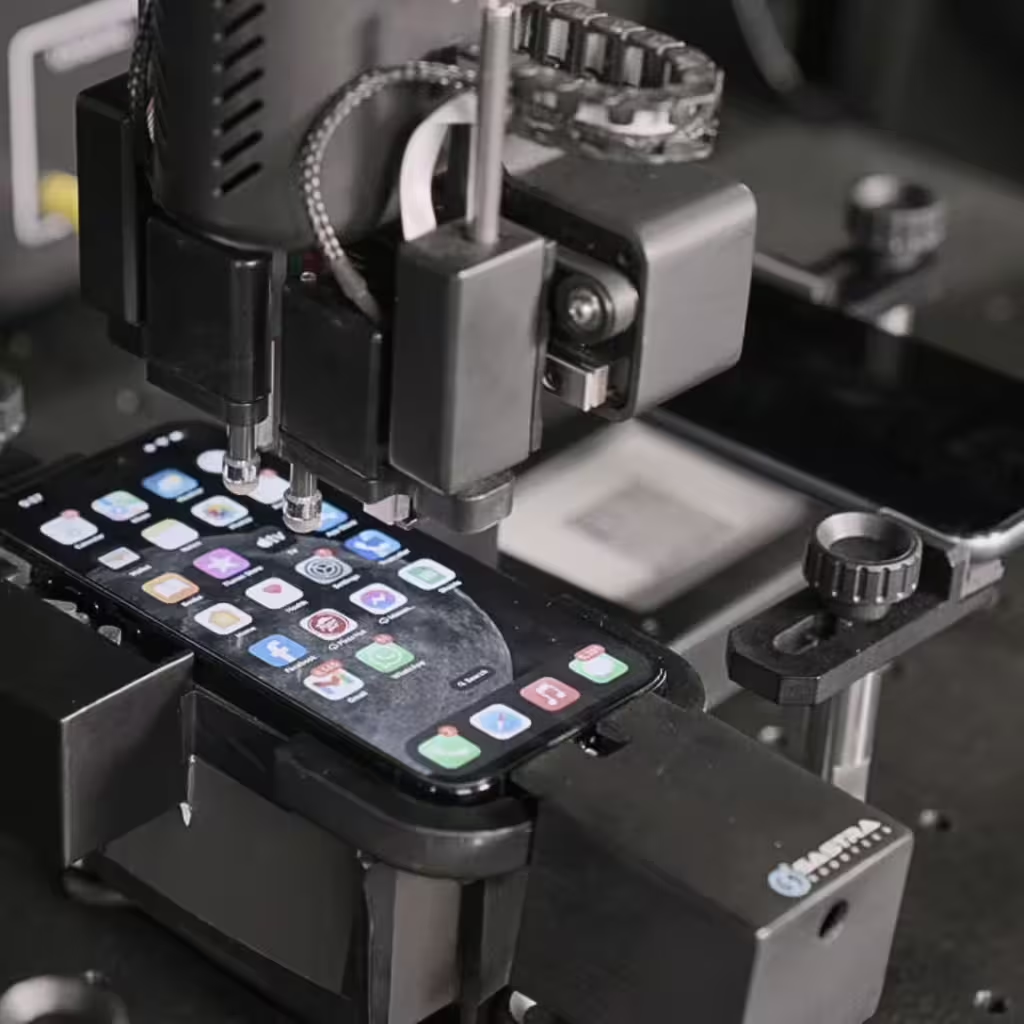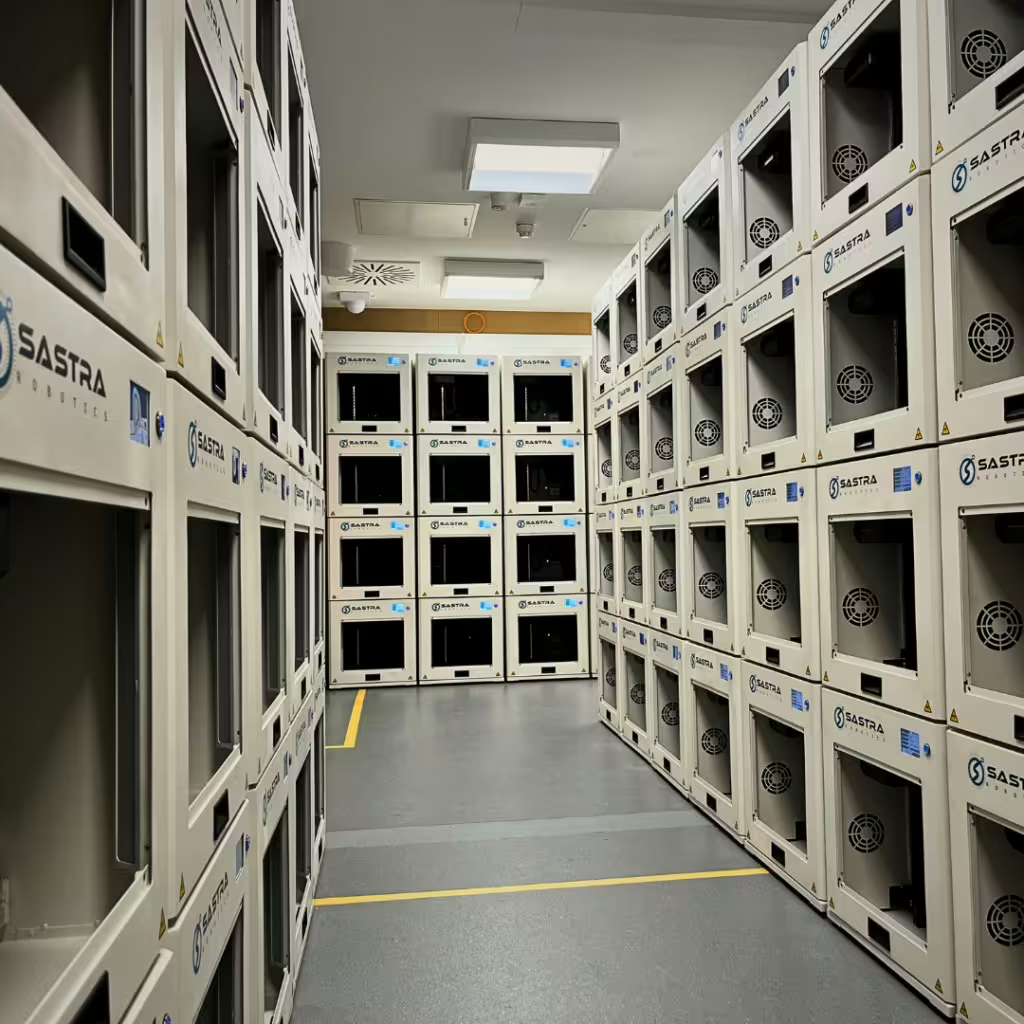Table of Contents
Automation is driving efficiency and innovation across different industries and operations, streamlining processes, boosting efficiency, and reducing the tendency for errors. When it comes to quality assurance and testing mobile apps, organizations usually prefer manual testing methods and practices because human expertise is required to check for errors and bugs in mobile applications.
However, we have come a long way since that. Given how much time manual testing methods require to give a green light to an application, it paved the way for automated testing. Robotic device testing cloud farms introduced a revolutionary method in which software testers created testing scripts that defined the steps to be automated, the expected outcomes, and any required setup or teardown process.
According to industry statistics, test automation can boost test accuracy by 90%, and companies can save up to 60% of their testing efforts. However, is it where we stop? Definitely not, because with the ever-going evolution, there are many opportunities available where we can make the process more efficient.
For instance, with the introduction of Generative AI, testing scripts can be automatically generated, thanks to AI-based testing tools. This saves the human input required to provide testing scripts for testing automation. We still have a long way to go. However, are you wondering did we went from point A to point B and where we are headed? Let’s understand in detail the evolution of Robotic Mobile Application Testing.
What is Manual Mobile App Testing?
Manual mobile testing is a process where human testers interact with the mobile app directly to evaluate its functionality and performance. Testers are solely responsible for finding bugs or issues using their skills and capabilities. Moreover, testers used to manually check the mobile app on different devices, operating systems, and network conditions.


In manual mobile testing, testers run the apps on mobile devices and check the features. Since no automated testing tools are used, and humans solely rely on their capabilities to find bugs and errors, this gives the testers liberty to act like end-users and experiment with the mobile app.
Manual mobile app testing is time-consuming, not reusable, and ineffective for performance and load testing. It can also be difficult to reproduce and has limited scalability.
Disadvantages of Manual App Testing
- In manual app testing, each step requires some human intervention, which makes the process slower and time-consuming, particularly for complex mobile apps.
- Manual testing requires human resources to check the app’s functionality, which can be expensive and raise labor costs. This means if you’re considering manual app testing for a long-term project, it might take significant time and a portion of your budget.
- Manual app testing can lead to human errors. If testers fail to test any issues or make errors during testing, they may produce inaccurate results. These errors can delay the app testing process, making it difficult for testers to detect problems or compromise the software quality.
Does manual mobile app testing always provide accurate results? Probably not. We humans aren’t perfect and we do make mistakes that make the testing process more expensive and time-consuming. Here are some drawbacks of manual mobile testing that necessitate the need for a revolutionary mobile app testing technique:
Overcoming the Challenges With Automated Testing
We can’t deny that mobile app testing is crucial to ensure its functionality and reliability. Software testers spend their day and night catching these bugs before the app launches, but there’s something that is always missed, even with leveraging the best manual testing processes.
Software-based automated testing leverages many tools to execute the test scripts to minimize human interference. These tools work on pre-recorded and predefined actions, which help to provide more accurate results for mobile apps than manual tests.


Automated testing frameworks, like Selenium, allow modules or entire applications to be tested automatically. The best part is that once the developer creates an automated test, they can run it whenever they need it, which isn’t the case with manual testing.
The Rise of Robotic Device Testing Cloud Farms
Automated testing is a revolutionary step towards mobile app testing that helps to minimize the time and effort required for complex and repetitive testing tasks. With the help of automated device farms, you can improve the quality of your mobile applications by testing across different devices. Device farms also help you develop videos and logs to identify issues with your application. Here are the most notable benefits of using device-testing cloud farms:

- Improved Scale
Automated mobile app testing speeds up the testing process by reducing the time to run repetitive tests from a few days to hours. Even if you hire dedicated mobile testers and engineers, they can manage to work 60 hours a week, but automation can allow tests to be run 24/7. This means that you can increase the number of tests with the same resources.
- Reduced Expenses
Automated app testing is less expensive than manual testing. It enables testers to build automated test scripts and reuse them whenever required without making additional charges. Automated testing can reduce testing costs by 50%, according to a report by TechWell, and reduce hardware costs by 40%, according to Gartner.
- Increased Coverage
The National Institute of Standards and Technology study found that automation can increase test coverage by 80%, in comparison to manual testing and with robotic-aided automated testing, 100% coverage is possible. Different types of mobile app testing can be automated, including unit testing, integration testing, system testing (regression, smoke, and functional), user acceptance testing (A/B and performance), and end-to-end testing.
- Boosted Speed of Delivery
Automated testing can increase the speed of releasing updates and new features in your mobile app. It speeds up regression testing significantly. In fact, it reduces the time required to integrate the feature and release it. The quicker you can release updates, the more competitive you remain in your industry. With automated testing, you can re-test the mobile app during development. Running smoke tests every time a code is pushed and testing the feature can streamline the entire process.
Quaco Vertix, Quaco Pro D, and Quaco Studio AI
In manual app testing, testers require a large team and significant time to scale up a project. On the contrary, cutting-edge robotic platforms, such as Quaco Robots from SGBI, offer higher scalability; testers only need to add test executors to the testing framework. Moreover, automated testing is more consistent and quicker than manual tests.
SGBI offers a comprehensive suite of automated testing services, which includes Quaco Robots and Quaco Studio AI. The Quaco Robots replicate human actions with high accuracy, providing a real-world testing environment, and Quaco Studio AI allows natural language test case generation, codeless test case generation, CI/CD integration, and in-depth analytics.
With SGBI’s Quaco Robotic Platform, organizations can achieve 8760 hours, operating 24/7 annually, while a team of QA engineers and testers can deliver 2760 hours. Also, our Quaco Studio Cloud platform can help you get a centralized view of your testing projects, which streamlines the mobile app testing process. It supports various scripting languages and frameworks along with AI-based test script generation to help with your testing needs. This helps identify key performance metrics and has a rigorous testing process.
Such automated testing solutions help you achieve better results by improving product quality, which leads to higher customer satisfaction. Whether you are testing a Minimum Viable Product (MVP) or a full-fledged mobile application, our products can help you eliminate the drawbacks of manual testing.
The Bottom Line
In the age of innovation, manual mobile app testing presents both challenges and opportunities. Manual testing is not as effective as automated testing because it uses human capabilities that are crucial for analyzing virtual aspects of the mobile app’s interface.
However, the future of this traditional way of testing can work greatly by adapting the latest technologies, acquiring new skills, and integrating AI-driven tools. By using manual and automated testing simultaneously, companies can save their developers time save money by reusing software case tests and getting more accurate results. Automated testing can speed up the testing process by automating repetitive tasks and data-intensive tasks.
With the emergence of RaaS-based mobile app testing services, organizations can solely focus on innovation. If you are interested in experiencing the potential of RaaS in real life, schedule a demo today! With SGBI’s end-to-end automated mobile app testing services, you overcome all the hurdles, like device fragmentation, limited test coverage, and more.




